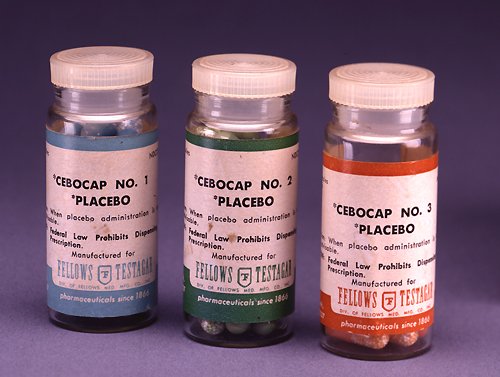Placebo Effect: Effectiveness Studies

What is the Placebo Effect?
According to the article, “Placebo Effect Definition”, the placebo effect is a phenomenon in which a placebo, or a non-therapeutic substance such as sugar, distilled water, or saline solution given as a medication, has been known to improve a patient's condition because the patient has the expectation that it will help him get better.
There is an opposite effect as well. It is called the nocebo effect. According to the article, “Definition of Nocebo”, a nocebo effect occurs when a patient has an adverse reaction to a medication unrelated to the pharmacological make-up of the drug. A nocebo effect occurs because a patient has prior negative expectations for the results of taking the medication.
How Does the Placebo Effect Work?
According to an article written by Shanna Freeman, “How the Placebo Effect Works”, one theory is that it is based on a subject-expectancy effect. Such a theory asserts that when patients know what the outcome of taking a medication is supposed to be, they may unconsciously change their reaction to affect that result. The patient may also simply report that result as being the outcome even if it wasn't. Other theories assert that patients experiencing a placebo effect have become conditioned to expect effective results.Another theory is that placebos have actually resulted in measurable effects in the brain. Such a theory would seem to suggest that, while placebos are based upon patient expectancy, the effects are not always just psychological.
What are the Research Findings on the Placebo Effect?
Placebos have long been used to satisfy a patient’s need for medication. It is known that placebos can be effective in making a patient feel better. According to Dr. J. Alexander Bodkin, director of the clinical psychopharmacology research program at McLean Hospital in Belmont, Massachusetts, there are some experts who believe that the placebo effect accounts for almost 100 percent of the effectiveness of medication. What has been previously unknown, however, is that patients who get better on placebo medications also experience changes in brain activity as well.
An article by Melinda T. Willis, “Study: Placebo Alters Brain Function”, claims that a new study shows that the placebo effect alters brain function. The study, which was published in the American Journal of Psychiatry, suggests that depressed patients receiving placebos experience changes in brain function similar to the changes caused by medication.
The nine-week study conducted by UCLA researchers used electroencephalography or QEEG imaging to observe brain activity in 51 patients. The 51 patients in the study were assigned to receive either placebos or one of two antidepressant medications. At the end of nine weeks, the patients were classified as either being medication responders, placebo responders, or non-responders to either medication or placebos. Most experts agree that the research findings may have important implications for the treatment of depression.
In conclusion, there is still much to be learned about the placebo effect and the way that placebos work. Researchers continue to study the placebo effect to learn more about it and to learn whether it can be reliably effective in making patients feel better.
Sources:
- Melinda T Willis, ABC News: “Study – Placebo Alters Brain Function”
- American Cancer Society: “Placebo Effect”
- Shanna, Freeman, Discovery Health: “How the Placebo Effect Works”
- Guardian.co.uk: “Placebo Effect Works Even if Patients Know They are Getting a Sham Drug”
- MedicineNet.com: “Placebo Effect Definition”
- MedicineNet.com: “Definition of Nocebo”
- Sify News: “Placebos Can Work Both Ways”